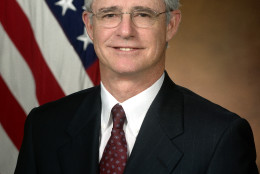Defense
-
The new Directorate for Digital Innovation launched Oct. 1 with a goal of integrating mission and enterprise technology to spur the development of tools and techniques.
October 07, 2015 -
The Army has released its new Energy Security and Sustainability Strategy, designed to enhance the force's readiness, capabilities, and performance. The strategy includes five goals. Katherine Hammack, assistant secretary of the Army for Installations, Energy, and Environment, was my guest to review each of the five goals, and explain how the Army will meet them.
October 06, 2015 -
DoD is establishing centers of excellence to verify commercial item costs without requiring cost and pricing data from companies.
October 06, 2015 -
The fiscal 2016 defense authorization bill includes major acquisition reforms. The bill would give military service chiefs more power over the defense acquisition processes. The authorization bill may be in trouble though. President Obama has threatened to veto it. Federal News Radio's reporter Scott Maucione tells In Depth with Francis Rose about what Congress is calling for at DoD
October 06, 2015 -
Identifying the details of where the Defense Department's money goes is the major contribution of new research from the Center for Strategic and International Studies. Steve Grundman is George Lund fellow at the Atlantic Council and former Deputy Under Secretary of Defense for Industrial Affairs and Installations. He spoke at the rollout event for the research project. He tells In Depth with Francis Rose his favorite part of the CSIS work is a survey of acquisition reform over the last 50 years because it shows a distinct milestone in the way acquisition reform has gone historically.
October 06, 2015 -
The Department of Defense has pursued acquisition reform for decades in an effort to address persistent cost and schedule growth across major programs. Now, six former defense officials at the University of Maryland have a long list of recommendations for how the department can finally achieve it. Jacques Gansler, former under secretary of Defense for acquisition, technology and logistics, chaired this recent work. He sat down with the Federal Drive with Tom Temin for a four-part interview on the report. Gansler says the group looked at the acquisition process in a holistic way.
October 05, 2015 -
The Senate will begin debate on this year's National Defense Authorization Act this week. Bloomberg reports a cloture vote is likely tomorrow, with a vote on approval after that. The House passed the conference report on the NDAA 270 to 156 Thursday. Andrew Hunter, senior fellow in the International Security Program and director of the Defense-Industrial Initiatives Group at the Center for Strategic and International Studies, told In Depth with Francis Rose the NDAA is a big deal every year, but this year it's even bigger.
October 05, 2015 -
The Senate's Cybersecurity Information Sharing Act would give DHS emergency powers during a cyber attack on federal or contractor networks holding federal data. Some say the provision is too vague.
October 05, 2015 -
The new Navy Cybersecurity division will be part of the headquarters staff, giving it reach both into the service’s resourcing decisions and its acquisition processes.
October 05, 2015 -
The rate of mergers and acquisitions in industry isn't just impacting the Defense Department, but civilian agencies as well.
October 05, 2015 -
A section of the Defense Authorization act requiring the Director of Operational Test and Evaluation to consider cost and schedule delays survives a congressional conference despite DoD’s opposition.
October 02, 2015 -
The Senate Armed Services Committee calls on the Defense Department to create a cyber defense policy and not just a strategy. Lawmakers say they are concerned about a lack of definitive plans in case of a major cyber attack against the United States. All of this is happening as the U.S. and China sign an agreement to stop cyber theft. Federal News Radio reporter Scott Maucione tells In Depth's Francis Rose more about the congressional concerns.
October 02, 2015 -
The Senate Armed Services Committee called on the Defense Department to create a cyber defense policy. Members said they were concerned about a lack of definitive plans in case of a major cyber attack against the United States. All of this happened as the U.S. and China signed an agreement to stop cyber theft. Federal News Radio reporter Scott Maucione tells In Depth with Francis Rose more about Congress' concerns.
October 02, 2015 -
A new study by the Center for Strategic and International Studies found the Air Force's competition rate for service contracts dropped by 15 percent over the last six years, while other military services saw competition go up.
October 01, 2015 -
The Office of Personnel Management Acting Director Beth Cobert said the department began sending notification letters to victims of the cyber breach. The letters include information about the identity theft protection and credit monitoring services.
October 01, 2015






